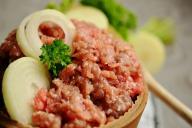From berry to berry and from variety to variety, dogwood can differ in sweetness.
But roughly its taste can be described as follows: something between wild plum, cranberry and currant.
Dogwood is tart, with character, but an interesting bouquet, and the aftertaste is always different from the first impression.
The benefits of dogwood
100 g of dogwood fruit contains almost 12% of the recommended daily intake of vitamin B9. Vitamin C.
Ascorbic acid is necessary for the body for redox reactions, to protect the immune system, as well as normal absorption of iron.

In folk medicine, dogwood was used for diarrhea; it also restored metabolism in the human body.
Dogwood berries are recommended to be included in the diet for skin diseases and eczema.
Drinks and infusions from dogwood berries are recommended for gastrointestinal disorders and bleeding, and for diseases of the oral cavity.
Who should not eat dogwood
Dogwood is contraindicated in cases of nervous overexcitation and mental disorders.
It should also be remembered that in overripe berries the sugar concentration is significantly increased.
This makes their consumption dangerous if you are prone to intestinal disorders (due to active fermentation).













